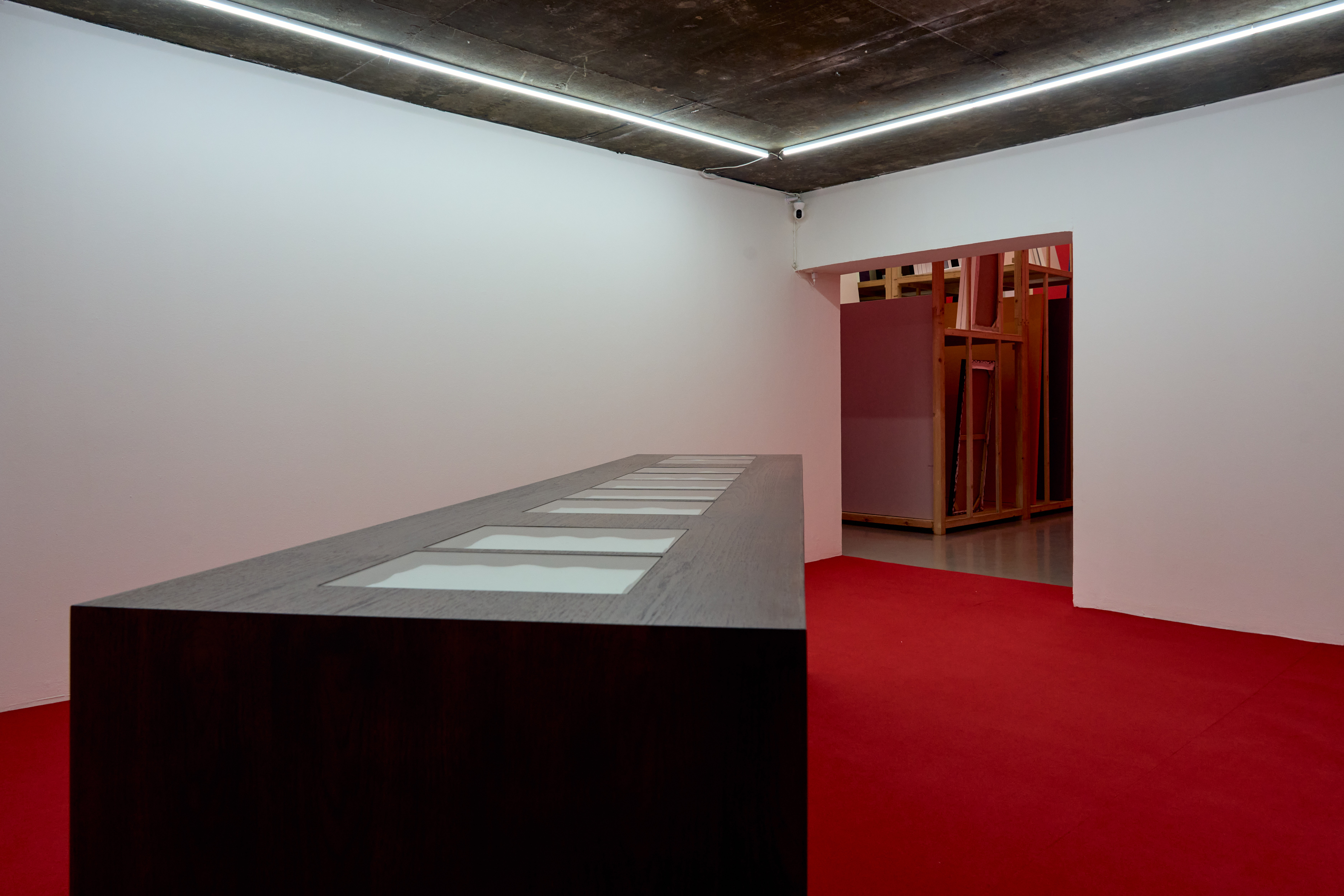The “End of History” Will Not Come Tomorrow, 2019–2022
Painting series and installation, 2019–2022
The “End of History” Will Not Come Tomorrow is a solo exhibition by Wantanee Siripattananuntakul that interrogates how financial systems structure everyday life through unequal access to economic and social capital. Building on her earlier investigations into monetary circulation, labour value, and housing rights, the project focuses on taxation as a concrete mechanism through which inequality is normalised and reproduced.
The “End of History” Will Not Come Tomorrow is a solo exhibition by Wantanee Siripattananuntakul that interrogates how financial systems structure everyday life through unequal access to economic and social capital. Building on her earlier investigations into monetary circulation, labour value, and housing rights, the project focuses on taxation as a concrete mechanism through which inequality is normalised and reproduced.
The project began with the artist’s analysis of her 2019 tax payments, including both direct and indirect taxes. Using statistical methods, she transformed these records into a series of Tax Paintings, turning bureaucratic data into visual form. Rather than aestheticising numbers, the works reveal how ordinary consumption is embedded within unequal economic systems.
The first part of the exhibition consists of 300 paintings that map patterns of spending, obligation, and limitation. Together, they show how financial structures shape daily choices, restrict mobility, and define the limits of personal agency.
The second part of the exhibition, The More You Pay, The More They Need, features nine blank A4 sheets created by blending the artist’s tax receipts with legal documents outlining tax exemptions for individuals connected to political power. This juxtaposition exposes how financial responsibility is unevenly distributed, while privilege is systematically protected.
Rather than treating taxation as a neutral administrative process, the project frames it as a political instrument that organises social hierarchy. By placing personal financial records alongside institutional privilege, the work demonstrates how inequality is sustained through legal, bureaucratic, and economic systems.
The exhibition argues that economic injustice is not an abstract condition, but a lived reality. It shows how financial structures enter everyday life as constraint, anxiety, and calculation—shaping how people plan, limit, and negotiate their futures.








